An international team of physicists, with the participation of the University of Augsburg, has for the first time confirmed an important theoretical prediction in quantum physics…
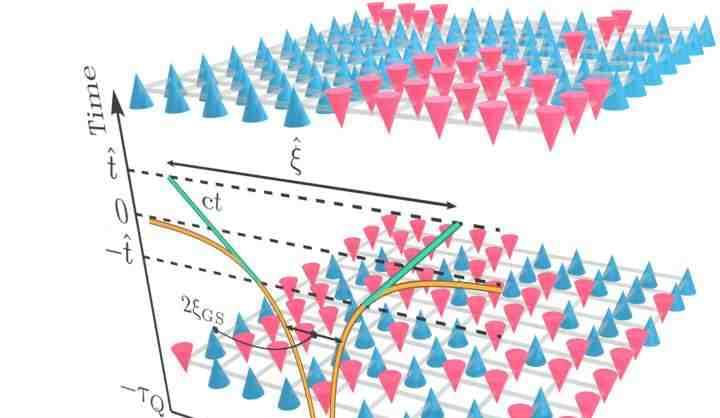

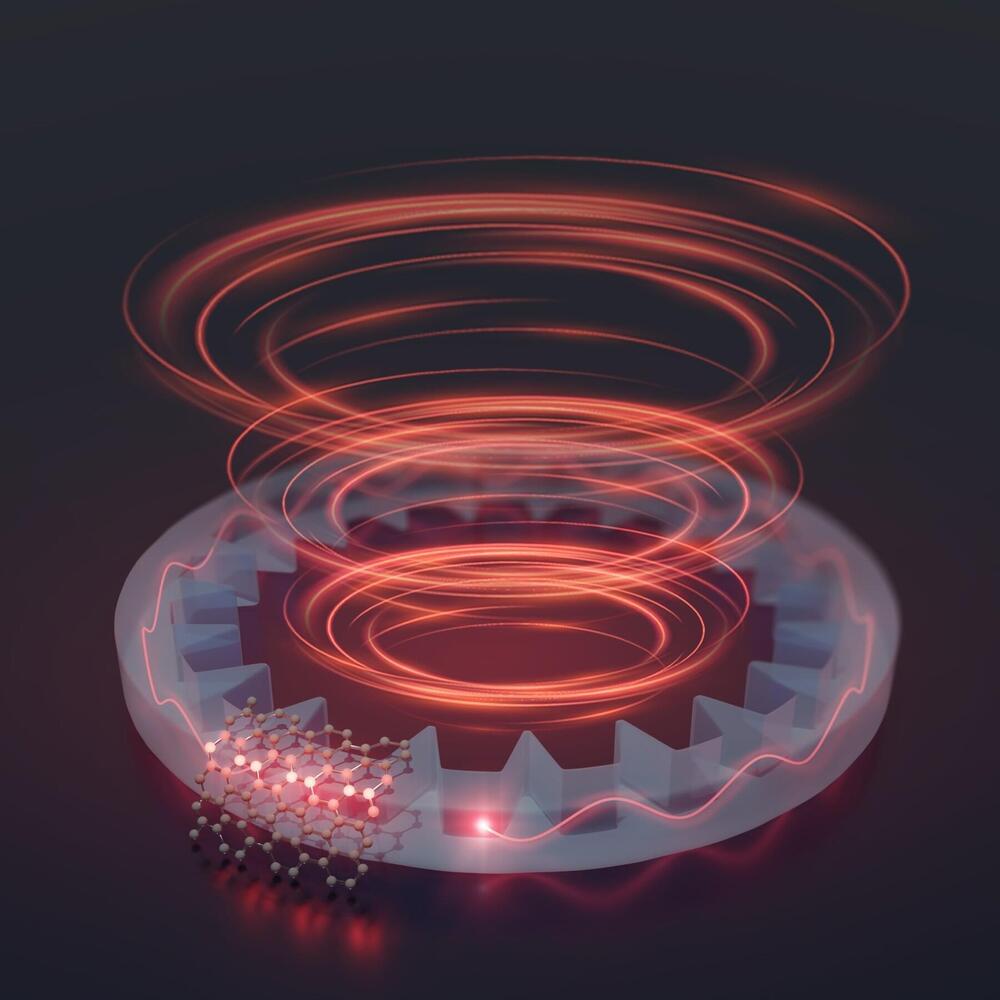
Quantum computers and communication devices work by encoding information into individual or entangled photons, enabling data to be quantum securely transmitted and manipulated exponentially faster than is possible with conventional electronics. Now, quantum researchers at Stevens Institute of Technology have demonstrated a method for encoding vastly more information into a single photon, opening the door to even faster and more powerful quantum communication tools.
Typically, quantum communication systems “write” information onto a photon’s spin angular momentum. In this case, photons carry out either a right or left circular rotation, or form a quantum superposition of the two known as a two-dimensional qubit.
It’s also possible to encode information onto a photon’s orbital angular momentum —the corkscrew path that light follows as it twists and torques forward, with each photon circling around the center of the beam. When the spin and angular momentum interlock, it forms a high-dimensional qudit—enabling any of a theoretically infinite range of values to be encoded into and propagated by a single photon.
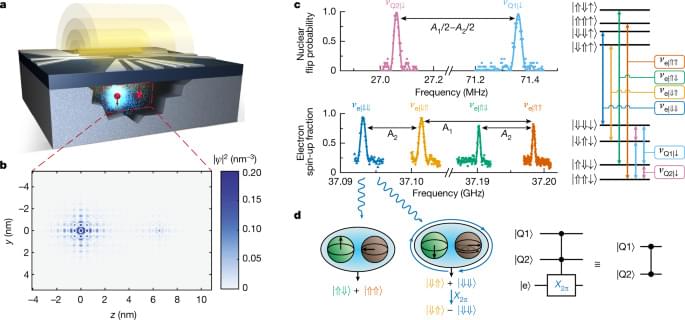
Circa 2022 Silicon based quantum computer is 99 percent accurate.
Universal quantum logic operations with fidelity exceeding 99%, approaching the threshold of fault tolerance, are realized in a scalable silicon device comprising an electron and two phosphorus nuclei, and a fidelity of 92.5% is obtained for a three-qubit entangled state.
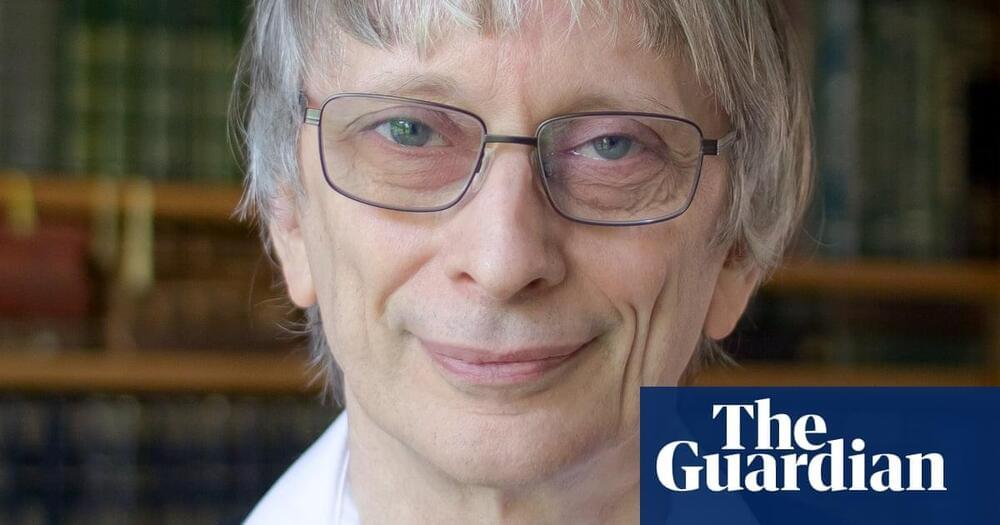
A theoretical physicist who has never had a regular job has won the most lucrative prize in science for his pioneering contributions to the mind-bending field of quantum computing.
David Deutsch, who is affiliated with the University of Oxford the $3m (about £2.65m) Breakthrough prize in fundamental physics with three other researchers who laid the foundations for the broader discipline of quantum information.
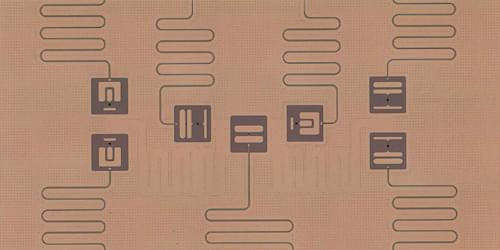

It may be possible to develop superconductors that operate at room temperature with further knowledge of the relationship between spin liquids and superconductivity, which would transform our daily lives.
Superconductors offer enormous technical and economic promise for applications such as high-speed hovertrains, MRI machines, efficient power lines, quantum computing.
Performing computation using quantum-mechanical phenomena such as superposition and entanglement.
China Launches World’s Fastest Quantum Computers | China’s Advancement In Quantum Computers #technology.
“Techno Jungles”
In 2019, Google announced that its 53-qubit Sycamore processor had finished a task in 3.3 minutes that would have taken a conventional supercomputer at least 2.5 days to accomplish. According to reports, China’s 66-Qubit Zuchongzhi 2 Quantum Processor was able to complete the same task 1 million times faster in October of last year. Together with the Shanghai Institute of Technical Physics and the Shanghai Institute of Microsystem and Information Technology, a group of researchers from the Chinese Academy of Sciences Center for Excellence in Quantum Information and Quantum Physics were responsible for the development of that processor.
According to NDTV, the Chinese government under Xi Jinping has spent $10 billion on the country’s National Laboratory for Quantum Information Sciences. This demonstrates China’s significant commitment to the field of quantum computing. According to Live Science, the nation is also a world leader in the field of quantum networking, which involves the transmission of data that has been encoded through the use of quantum mechanics over great distances.
Classical computers cannot compete with the capabilities of quantum computers when it comes to certain tasks due to the peculiar mathematics that governs the quantum world. Quantum computers perform calculations using qubits, which can simultaneously exist in many states, in contrast to classical computers, which perform calculations using bits, which can only have one of two states (typically represented by a 1 or a 0). Because of this, quantum computers solve problems significantly faster than traditional computers. But despite the existence of theories that have been around for decades and predict that quantum computing will outperform classical computing, the construction of practical quantum computers has proven to be a great deal more difficult.
If you enjoyed considering please like and subscribe to it, it helps grow our channel.
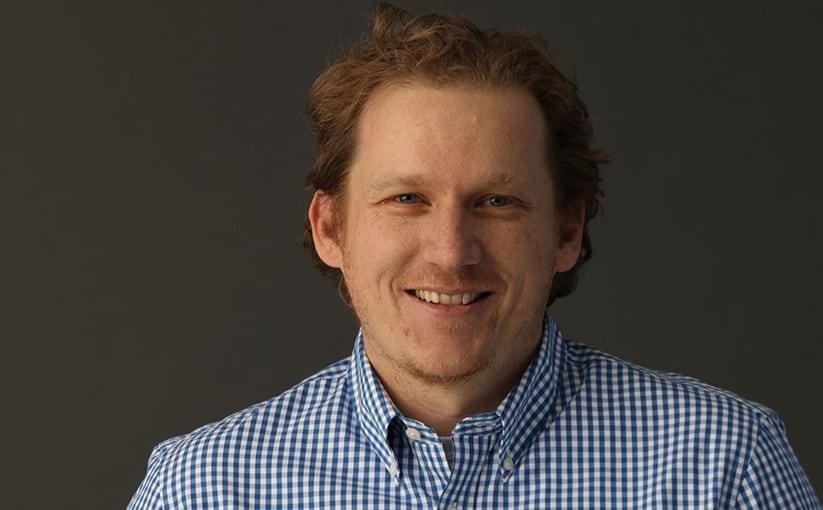
Companies and research labs across the globe are working towards getting their nascent quantum technologies out of the lab and into the real world, with the US technology giant IBM being a key player. In May this year, IBM Quantum unveiled its latest roadmap for the future of quantum computing in the coming decade, and the firm has set some ambitious targets. Having announced its Eagle processor with 127 quantum bits (qubits) last year, the company is now developing the 433-qubit Osprey processor for a debut later this year, to be followed in 2023 by the 1121-qubit Condor.
But beyond that, the company says, the game will switch to assembling such processors into modular circuits, in which the chips are wired together via sparser quantum or classical interconnections. That effort will culminate in what they refer to as their 4158-qubit Kookaburra device in 2025. Beyond then, IBM forecasts modular processors with 100,000 or more qubits, capable of computing without the errors that currently make quantum computing a matter of finding workarounds for the noisiness of the qubits. With this approach, the company’s quantum computing team is confident that it can achieve a general “quantum advantage”, where quantum computers will consistently outperform classical computers and conduct complex computations beyond the means of classical devices.
While he was in London on his way to the 28 th Solvay conference in Brussels, which tackled quantum information, Physics World caught up with physicist Jay Gambetta, vice-president of IBM Quantum. Having spearheaded much of the company’s advances over the past two decades, Gambetta explained how these goals might be reached and what they will entail for the future of quantum computing.
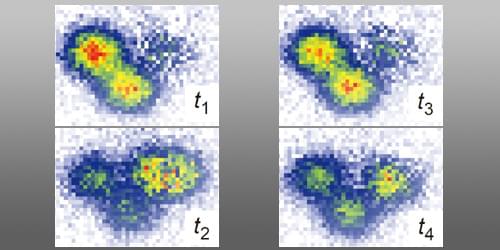
Researchers produce analogues of hard-to-study quantum phenomena in a gas of strontium atoms near absolute zero.
Recently, researchers have begun using ultracold atomic gases to simulate phenomena that are difficult to study in their natural environments. Using electromagnetic fields, for example, they can orchestrate interatomic interactions that are analogous to interactions in condensed-matter systems, which they can then study with greater experimental control than the real examples allow. Now David Wilkowski of Nanyang Technological University in Singapore and colleagues use an ultracold atomic gas to simulate a condensed-matter system’s spin dynamics [1].
Wilkowski’s team cools a gas of strontium-87 atoms to 30 nK. Then, using three convergent laser beams, they drive the gas through various transitions until the atoms populate two so-called dark states, in which quantum mechanics forbids the atoms from undergoing spontaneous emission.
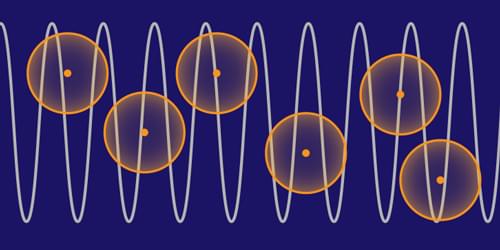
Researchers have demonstrated that a solid can exhibit an enhanced nonlinear optical phenomenon usually seen only in cold atomic gases.
Among the benefits brought about by the invention of the laser in the 1960s is the ability to generate light at an intensity great enough to produce nonlinear optical effects. Such nonlinear effects have entered daily use in applications that include infrared-to-visible-light wavelength conversion (in a green laser pointer, for example) and two-photon excitation (in fluorescence microscopes for observing biological living tissue). Now Corentin Morin of the École Normale Supérieure in Paris and colleagues address a third-order nonlinear process called the Kerr effect, which manifests as a change in a material’s refractive index when it is illuminated with light of different intensities [1]. The researchers demonstrate a giant Kerr nonlinearity in a solid, a state of matter that has, until now, exhibited only a weak Kerr effect. The result implies the possibility of scalable nonlinear quantum optics without the need of cold atoms in high vacuum.
The key to the discovery by Morin and colleagues is a quasiparticle called a Rydberg exciton, the understanding of which rests on two concepts. The first concept is the Rydberg series, which is the discrete energy-level structure available to an atom’s outermost electron, and which is indexed by the principal quantum number n. A high-lying Rydberg state has a large n and exhibits properties such as a large electron orbital radius, a long lifetime, and a large dipole moment, all of which are missing in the ground state. The second concept is a hydrogen-atom-like quasiparticle called an exciton—a negatively charged electron, photoexcited across a semiconductor’s band gap, Coulomb-bound to a positively charged hole left in the valence band.